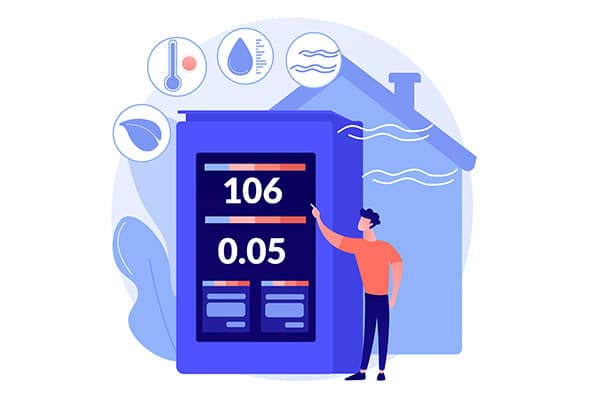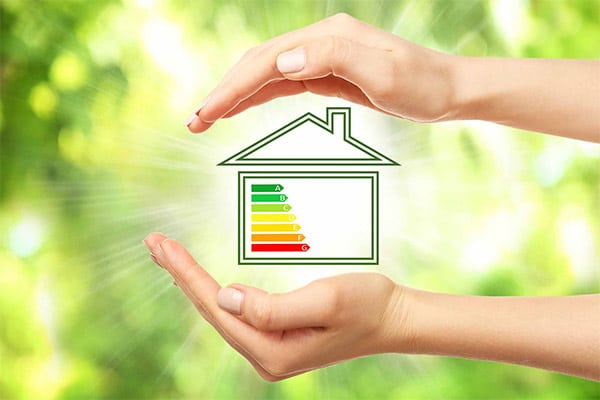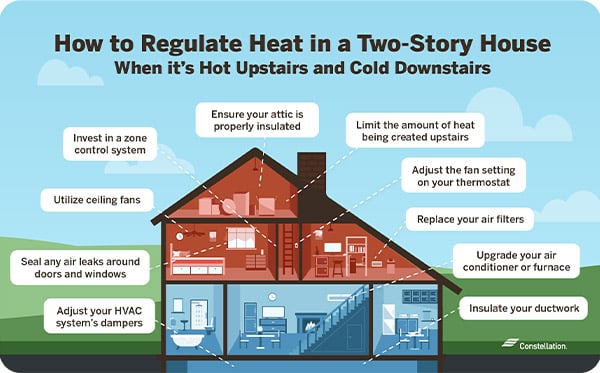In parts of the world where the temperature and weather drastically change beyond the ideal, zoning your HVAC system is an efficient way of moderating the living ambience and living in healthy conditions.
To provide your family with ultimate comfort and avoid clashes over thermostat settings, consider HVAC zoning your home. This will provide every room with an individual thermostat to set the temperature according to the occupant’s liking.
No more walking into the other room or getting overwhelmed by the chilling floor tiles or humid kitchen spaces
When it comes to zoning your HVAC system, you may think if it is entirely necessary to do so, considering the costs involved. However, it goes beyond costs, and in the long run, you may be able to reap its benefits depending on the type of building you’re considering zoning.
These buildings will benefit the most from HVAC Zoning, while smaller two storeyed houses may consider zoning as a type of luxury. Whatever the case is, it only arms you with benefits in the foreseeable future.
From elevating your quality of life to helping maintain the efficacy of your furnace and air conditioner, there are many reasons to consider an HVAC zoning system for your space.
Zoning is a critical feature in HVAC systems that allows for different areas or zones in a building to have customized heating and cooling. This means that rather than treating the entire building as one unit, the HVAC system can be adjusted to meet the specific needs of each area.
By implementing zoning, building owners can improve energy efficiency, reduce costs, and increase comfort levels for occupants.
Additionally, zoning allows for more precise temperature control, enabling individual occupants to adjust their environment to their preferred temperature. Overall, the importance of zoning in HVAC systems cannot be overstated, as it provides a more efficient, cost-effective, and comfortable solution to heating and cooling..
Here we will be discussing some of the perks of zoning your HVAC system..

Modern zoned systems can be installed so they can be controlled and operated separately by the occupants. This is done thanks to the growing popularity of smart thermostats and smartphone control features customized to your needs.
If anyone feels the need to control the clime of another room, they can simply open up their mobile app and make the needed adjustments with the help of their fingertips without having to walk up there.
This is also beneficial if the weather changes suddenly, the app can immediately change the temperature during volatile weather changes to moderate the environment and keep the ideal conditions for comfort.
Top-tier models have the capability to eliminate over 95% of pollutants such as mold, tobacco smoke, pollen, and pet dander.
Certain models can also capture and neutralize common viruses, significantly enhancing indoor air quality and overall health.
By segregating your home into different zones, you can drastically reduce the circulation of allergens and contaminants, improving the quality of the air you breathe every day. This may help alleviate allergies, respiratory problems, itchy eyes, skin rashes, and other health conditions triggered by pollutants present in the indoor air.
Studies show that a zoned system can reduce the spread of mold spores from the basement, which affects 70 percent of households.
Reducing heating or cooling in unoccupied rooms can significantly reduce your utility bill.
With a zoned HVAC system, you can control each area's temperature independently, saving up to 35 percent on your energy bill, and a 29% reduction in cooling energy consumption with zoning and temperature setpoint adjustments.

A professional designer can determine your comfort level while ensuring the system runs efficiently, reducing energy consumption. However, a poorly designed system can nullify the benefits of zoning, making professional installation critical.
According to the ECO report, it is possible to keep dampened multi-zoned systems as a comfortable option for customers without significantly increasing energy consumption by eliminating certain common practices.
According to the U.S. Department of Energy HVAC systems that are properly installed and maintained can last anywhere from 15 to 25 years.

Zoned heating and cooling make your HVAC system work smarter, not harder. With customized airflow to each area of your home, the system runs at a lower capacity, resulting in less wear and tear and extended life for your HVAC.
With an efficient zoning system, the workload is divided into smaller zones, which reduces the overall stress on the system.
Where typical systems pay for themselves in just a few years, zoning HVAC frees up your wallet and simplifies your life.
The appliances you use can also affect the temperature control in your home. Heat-emitting units like stoves and fireplaces can decrease the overall temperature of your home when using a standard HVAC system.
The kitchen and living room can be independently regulated with a zoned system, avoiding this issue. So, if you're cooking for an extended period, there is no need to worry about the rest of the house getting too hot or cold.
Zoning regulates the temperature, humidity, and airflow of your home and workplace, and the appliances to improve the overall lifespan of your appliances.
Two Units With One System provides increased flexibility for homeowners, as they can heat or cool specific areas of their homes using one system.
Zoning your HVAC system can help you customize the temperature of specific areas on your schedule, reducing maintenance and upkeep costs.
For example, they can heat their bedrooms at night while cooling their living room during the day, without having to run two separate HVAC systems.

As energy costs continue to rise, more and more homeowners and building owners are searching for effective ways to save money and go green.
According to the U.S. Department of Energy, HVAC systems account for nearly 48% of energy use in a typical home.
Save up to 30% on your monthly utility costs by not wasting energy and money on heating or cooling rooms that no one uses at certain times of the day.
In addition, many zoning HVAC systems are Energy Star certified, which means they meet strict energy efficiency guidelines set by the U.S. Environmental Protection Agency to lower your energy bills and reduce your impact on the environment.
When choosing a zoned heating and cooling system, there are several controller options to pick from. A wall-mounted AC and heating unit will come with handheld wireless controllers, which are a standard feature, and the added features will have different estimates.
While some homes require something extra to complete the installation process, this is most commonly seen with older homes, higher performance homes, or homes in colder weather regions where the temperature will drop below negative 13 degrees Fahrenheit regularly.
With these homes, specialize d equipment and designs are necessary. All of this will impact the final cost of the system installation.

Generally, air stratification is the most common challenge with owners of multi-story buildings or homes. Warm air is always rising with the cooler air falling. It could be sweltering on the third floor during summer when at the same time, the basement might be freezing.
In such scenarios, zoning is the perfect way to control the temperature. It ensures each part of the house receives adequate conditioned air.
One thermostat can be ineffective because the different floors and areas of your home may have several factors that affect the temperatures.
A zoning system communicates with the thermostats, and opening and closing dampers are installed within your home’s ductwork.
In homes with areas such as a library, an attic, a guest room, or a basement, it's not uncommon for these spaces to go unoccupied for extended periods.
With a zoned system, you can selectively turn on heating or cooling only in these areas when used, eliminating energy waste that would otherwise occur from heating or cooling unoccupied spaces.
Keep your family comfortable and happy with a zoned HVAC system. Some other benefits include fan controls, humidity controls, and remote controls, which can be adjusted independently to your comfort.
With easy installation and increased efficiency, the zoning system may be the best option for your home that you ultimately seek!